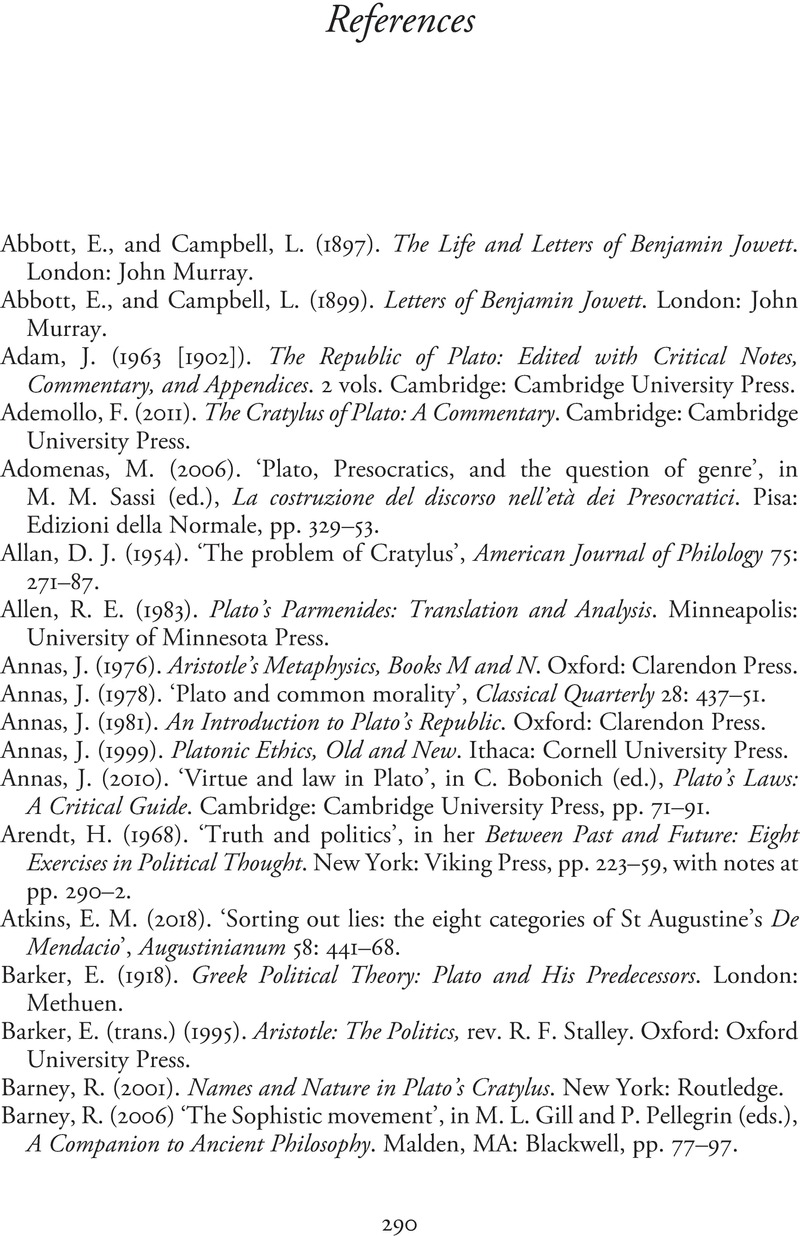Book contents
- How Plato Writes
- How Plato Writes
- Copyright page
- Contents
- Preface
- Acknowledgements
- Introduction
- Part I Approaches to the Corpus
- Part II Argument and Dialogue Architecture
- Part III Myth and Allegory in the Republic
- Part IV Projects, Paradoxes, and Literary Registers in the Laws
- References
- Index
- References
References
Published online by Cambridge University Press: 27 July 2023
- How Plato Writes
- How Plato Writes
- Copyright page
- Contents
- Preface
- Acknowledgements
- Introduction
- Part I Approaches to the Corpus
- Part II Argument and Dialogue Architecture
- Part III Myth and Allegory in the Republic
- Part IV Projects, Paradoxes, and Literary Registers in the Laws
- References
- Index
- References
Summary

- Type
- Chapter
- Information
- How Plato WritesPerspectives and Problems, pp. 290 - 304Publisher: Cambridge University PressPrint publication year: 2023



